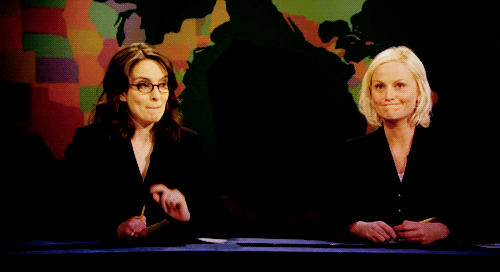The NBN has come and gone the Internet seems to be working so far… hopefully it stays working so there won’t be any problems. On the other hand, this post will be the second-last one. The next one after this will address royalties and returns – and then Section 2 (about manga publishing) will end, and I’ll be getting back to drawing my next story!

Part 5: Getting Paid – Advances
When people talk about publishing contracts, the first thing that comes to mind is probably money. How much will I get paid, and how will I get paid?
Money’s obviously very important, but the general answer to that question if you’re a manga-style artist in the West is: “Not that much,” and “in chunks.” Usually, the money you get is paid in 3 parts – once on signing the contract, once when you’ve reached a milestone, and once when the project is complete. Regardless of the sum, the money is called an ‘advance’, and regardless of whether it fulfils the normal definition of an ‘advance,’ (like in the event of work-for-hire), the money will usually be called an advance.
The first thing you must know about an advance that a lot of people don’t know:
An advance is technically a loan.
That’s right. It’s not ‘free money,’ or ‘payment for your writing of your book which we are now going to license the rights and then publish.’ The money you get paid upfront… isn’t actually yours, though you get to keep all of it, even if your book doesn’t sell well. However, if you screw up your end of the deal and don’t deliver your book on time (or to the publisher’s satisfaction), then the publisher has the right to demand the advance money back from you. Usually they’re highly unlikely to do so, due to the time and costs involved, but sometimes they may.
The advance is money the publisher lends you, in the expectation that you’ll have something to live on while you’re working on your book. When the book is done and published, the publisher fully expects you to repay that money. In other words, if a publisher advances you $10,000 to do your book, your book is expected to earn them that $10,000 back – not through the money they make, but through the money you make.
How?
Well, I’m sure you’ve heard of this thing called royalties. I’m sure you’ve heard that writers (and musicians, etc) get royalties from publishers, which are a small percentage of the sale of each book. Typically, royalties are 8-10% of the list price (15% for hardcovers). This means that if your book’s retail price is $10, then you’ll earn 80c to $1 for each copy of your book sold.
You are expected to earn your advance back through royalty payments, before you’ll see any actual royalty cheques from your publisher.
MATH TIME!
Say I wrote ‘Awesome Story,’ and I sign a publishing contract with QC Publishing to publish the book. The advance was $20,000 at a gross royalty rate of 10% of the list price. The book will be sold at $10. The book just got published.
Question: So, how much royalties will I be getting right off the bat?
Answer: NONE. I’m in the hole to QC Publishing for $20,000, due to the advance they paid me. An advance is a loan, remember? It’s money I technically owe QC Publishing, which I have to recoup for them.
Each copy of ‘Awesome Story’ sold at $10 gets me $1 per copy. If I sold 1000 copies of ‘Awesome Story,’ then I’ve made $1000 worth of royalty money. Take that out of the $20,000 I owe QC Publishing, and I still owe $19,000.
Anyway, I need to sell 20,000 copies of ‘Awesome Story’ before I will see a single cent in royalties. If I don’t sell those 20,000 copies, then I’m in debt to the publisher, and the publisher may not want to publish my next book.
This is why 85% of all books don’t earn back their advance. It’s because not that many books will sell consistently over 20,000 (this is too small a number, actually).
Now, if ‘Awesome Story’ sold only 18,000 copies, QC Publishing is highly unlikely to ask for that remaining $2000 back from me. It’s simply a dick move, and no publisher does it because it’s unfair. Once a publisher pays an advance, the author usually keeps all the money, regardless of the outcome. However, nobody will be impressed when they look at your royalty statement either.
But hey! The Publisher lost money too, right? They took a risk and paid me $20,000, so they lost $2000 on the gamble, right?
Not necessarily.
Retailers take a 40-60% cut of a book’s retail price, so if a book is sold for $10, then $6 go to the retailer (whoever it is). The remaining 4% will be split between the publisher, publishing costs and the author. If the author gets $1 per book, the publishing house gets $3, which has to cover printing, shipping, warehousing, cover design, formatting, copy-editing and all the overheads of running a publishing house.
Anyway, assuming I sold 18,000 copies of ‘Awesome Story,’ then it means my publisher grossed 18,000 x $3 = $54000. Did they lose money? Depends. Generally speaking, publishers calculate print runs through mathematical formulas that will give them an idea of how many copies a particular book will sell. They will usually print a number of copies close to how they think the book will sell, and they will definitely make sure they’ll recoup their costs. The number of copies they print of a particular book isn’t a wild stab in the dark. It’s calculated to ensure that the publisher at least breaks even. If they don’t do that, they’ll go out of business real soon.
*****
Next Wednesday – royalties and returns! Last post on this!











